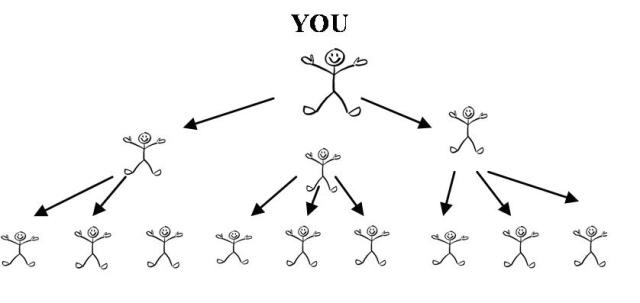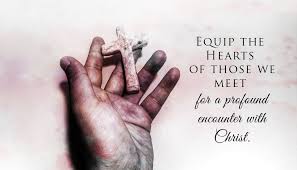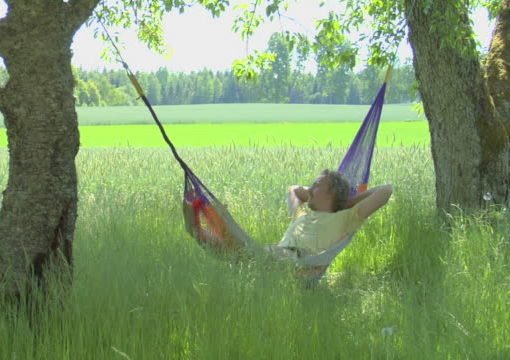I returned recently from attending “Voice and Vision: The National Summit for Ministries With Youth and Young Adults” held at Franciscan University in Steubenville, Ohio. The Summit was sponsored by the National Dialogue and is a continuation of the efforts associated with both the Synod on Young People that was held at the Vatican in Rome last spring, 2018 and the V Encuentro that was held last fall, 2018 in Grapevine, Texas.
In conjunction with these efforts, the National Dialogue is assisting the the United States Catholic Conference of Bishops (USCCB) to, as is advertised on the National Diologue website, “more deeply understand the lived experience of youth and young adults so that as a Church, we can transform our ministry practice to more effectively encounter and accompany the young church that will build upon what has been learned from the Synod and V Encuentro,” as well as looking at how to incorporate the suggestions from the Post-Synodal Apostolic Exhortation, Christus Vivit: To Young People and To The Entire People Of God, into the national youth and young adult ministry practices.
Several observations and takeaways came from my participation in the Summit, and I wanted to share them with you because I firmly believe they reflect the heart of the Church for her people, especially the young, but even more so, are indicative of what and how the Church is calling anyone in ministry to acknowledge, and either begin, or continue to intentionally implement in the midst of serving His people in His vineyard.
Good Youth Ministry Is Just Good Ministry. Period.
One of the greatest challenges being faced in the Church today is the idea that there are different “types” of ministry. Youth ministry. Young Adult Ministry. Children’s Ministry, Adult Ministry. Hispanic Ministry. Evangelization Ministry. Street Ministry. The list goes on and on.
And for each of these “ministries,” there has emerged different methodologies, practices and specialized resources. Now, there are particular ministerial concerns that are specific to particular age groups–i.e. you should not teach catechesis to kindergartens in the same manner that you would teenagers, but with these specialized ministry practices and resources, there sometimes is also a general lack of willingness to consider or adjust models of ministry which would better reflect what the Church might be asking of its ministers in regards to what and how we should go about our respective ministry.
For a myriad of reasons that I won’t take the time to go into here, those involved in youth and young adult ministry have, as a general rule, tended to be a bit more open and have been more willing to embrace a variety of ministry best practices that have emerged, particularly during the last decade.
Best practices like: going out into the community to encounter young people and their parents at non-church related events; or engaging in personal conversations to develop a trusting relationship that not only focuses upon getting to know the young person by name, but to also know them and pray with them for their specific needs and concerns. Or the process of sharing one’s personal testimony in a casual setting so as to share how making a commitment to Jesus has been THE difference in one’s life; and then be able to lovingly challenge young people to do the same.
Unlike years gone past when youth and young adult ministry may have been all about “fun” or just large “social events”, youth and young adult ministers are now very intentional about striving for holistic formation opportunities that will meets all the human, spiritual, intellectual, and pastoral needs for anyone involved (including themselves). But most importantly, there has been a paradigm shift from an attitude and the practice of needing to plan “for” youth and young adults, and instead being intentional about planning “with” those same youth and young adults.
The implementation of these best practices has placed youth and young adult ministers in the vanguard of what are now being recognized as best practices for church ministry in general. Therefore, it would be very wise indeed to now look to youth and young adult ministers for their input, along with ask for suggestions concerning the what and how they are doing their ministry, so as help increase the effectiveness and success of all types of ministry within the church.
Everyone Has A Story to Share.
The reality is that everyone has a story to share, and we need to learn to actually listen to one another.
Why? Because in the process of listening and sharing our stories, we hear how we all want the same things–an encounter with the Lord, thirsting to learn the full Truth, beautiful liturgy, desiring to evangelize and be known by name, and wanting to be filled with courage and hope by a honest, transparent and accountable leadership who accompanies them in the midst of all the joys, sorrows, struggles, and successes that comprise daily life.
In other words, through our stories we come to realize that “they” are actually us.

And this realization is key because it helps us heal old wounds and divisions, and ensures that the Body of Christ is not fractured into a million special interest or advocacy groups, but is unified in its mission to bring the love and mercy of Jesus to the entire world and being sanctified through, with and in Him.
Every Person Has Gifts and Talents To Share.
As we share out stories, we can also remind one another that God has created us to play a special role in helping bring others to Christ, and this means that the Body of Christ is less than if each person’s gifts and talents are not utilized to their full potential in helping build the Kingdom.
We pay lip service to this idea, but it’s rare that one encounters a place where it’s a full blown reality, particularly when it comes to involvement of youth, young adults and those who live on the margins–like our undocumented brothers and sisters, the poor, and the elderly.
Too often, we are unwilling to “make space” in our communities and be welcoming to those who might also want to do whatever “thing” it is that we view as “my ministry.” We might be all right with them helping in whatever way we deem appropriate, but gosh forbid, someone suggests that something be done differently–particularly if it’s “always been done that way.”
How hospitable are we towards those who may have experience or knowledge about a ministry that we don’t have? Or how enthusiastic are we in recruiting volunteers to participate in any way other than what we have determined they can/should do? Nothing builds walls and brings division to communities faster than being willing to show up and give of yourself to a ministry, and then you are not permitted to do anything–other than what you are told to do, and in the manner that someone else decides. Talk about communicating how much you are NOT needed!
And yet, we permit this unwelcoming culture to reside in our communities where the experience instead should continuously be like the welcoming home feast that greeted the Prodigal Son upon his return to his father.
And why does this happen? Because people are afraid of change. And afraid of losing control. And afraid of losing status. We forget that there is nothing that we have that wasn’t given to us by our Heavenly Father, therefore, what I think is mine, isn’t actually mine to begin with, but we still tend to hold on tight, don’t we?
A quote by Cardinal John Newman really has helped me in cultivating an openness to any kind of change in my life, and it’s this: “To grow is to change, and to become perfect is to have changed often.”
We Are the Program.
In our American culture, we tend to think that if we can just find the right “program”, then whatever problem we are confronting in the parish will be solved. Be it overcoming poor financial stewardship, a lack of understanding about the Eucharist, engaging the young people to get involved in ministries, learning about the Bible, or trying to empower parents to become the first formators of their children’s religious formation, there is “a program for that” to address it.
But this isn’t what Jesus did. Jesus didn’t lay out the “four simple steps to evangelize” or “8 ways to perform an act of mercy towards our neighbor.” Rather, Jesus formed each of His Apostles through His presence to go out and invite others to come to Him. Every Apostle had a particular role to play in spreading the kergyma to the far reaches of the known world, and we are called to do the same today.
How?
By being “the program” for others. WE are to be the encounter with Christ for those who may not know Him yet, or who need to draw closer to Him. It is through each of US that others normally first encounter and experience the love and mercy of God, so that necessitates that we, too, need to be on the journey striving for holiness as we accompany Jesus (and He accompanies us).
Bottom line, we are ALL called to be facilitators of Christ’s love within the world.

Accompaniment Is Not In Lieu of Apologetics.
Bishop Robert Barron shared a taped video message with the Summit participants, and one of the comments was dead on. It was that “accompaniment is not at odds with apologetics.” What Bishop Barron was stressing is that the old idea that if we “accompany” someone than that means we don’t share the fullness of the Truth with whoever we are accompanying is absolutely FALSE.
Rather, Bishop Barron reminded us that true sharing of the kergyma with others can only happen if as we encounter the person and get to know them and accompany them through their life, we are also making a clear and compelling case for Christ.
It is impossible to make a clear and compelling case for Christ if we are not sharing the fullness of who He is–the Way, the Truth and the Life, and the reality that there will be “no life within you except through, with and in Him.” So, accompaniment is not in lieu of apologetics or catechesis, but rather is wrapped hand in glove as it reaching out in love and mercy to the many in our world who so desperately need it.
Must Be Promulgators Of The Message and Catalysts For Unity In Our Nation.
On the last day of the Summit, Bishop Frank Caggiono of the Diocese of Bridgeport, and Member of the USCCB Committee on Evangelization and Catechesis, and Chairman of the Subcommittee on the Catechism, gave the closing address that encapsulated the lessons learned and proposed a path ahead for all those who had gathered together to seek and attempt to draw conclusions from the recent national and international discussions about young people.
Bishop Frank shared some questions for each of us involved in ministry to reflect and pray about as we went back to work in our respective areas of the Lord’s vineyard:
Who are you willing to invite BY NAME into this journey?
Are you willing to do ministry one person at a time?
Are you willing to walk–even if it’s in the wrong direction–in order to accompany people to greatness in Jesus Christ?
Will you love until it hurts? Until the very end?
All of these are important questions for anyone involved in ministry–regardless of what “type” it might be, but even more importantly was the mandate that Bishop Frank gave each of us, and partially my motivation for having shared so extensively with you here, and it was this:
That we must be promulgators of this message of accompaniment and encounter and act as catalysts for unity in our nation because the future of the Church depends upon it.
Why? Bishop Frank didn’t address it in his talk, but here’s a part of my SAY YES Manifesto that does:
We believe the world desperately needs saints and the time is NOW. We must SAY YES to the mission to raise up the next generation of saints, and waiting “to do something” is simply a shirking of our God-entrusted responsibility.
So, SAY YES. And I look forward to seeing you on the Way again soon.

Christina Semmens is a Roman Catholic author, blogger, speaker and mentor. She currently lives in Fort Payne, Alabama where she strives to live out a life of authentic discipleship in the pursuit of holiness while encouraging, teaching and accompanying others in striving to do the same. You can find out more about Christina and her ministry efforts at www.sayyestoholiness.com. Or sign up up for her weekly Say Yes to Holiness newsletter here.



